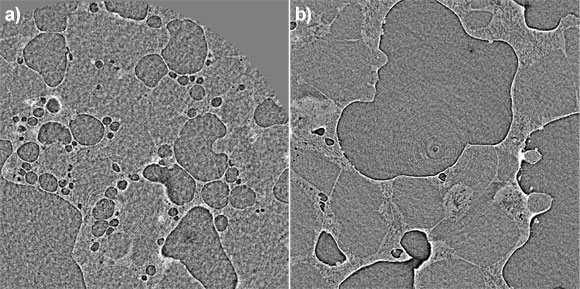- Home
- Industry
- Industry news
- What makes ice cream...
What makes ice cream smooth and creamy?
08-08-2015
Unilever used high-resolution tomography imaging to characterise the microstructure of ice cream.
Share
Company
Unilever
Challenge
The microstructure of ice crystals and air bubbles is critical to ice cream’s quality and sensory properties. Ice cream is inherently unstable, and temperature changes during transport, storage or even on exit from the customer’s freezer can all play a factor in destroying the microstructure of small ice crystals, leading to recrystallisation and a coarser structure.
Sample
Ice cream
Solution
Using the X-ray tomography setup of ID19 at low temperature, the microscopic structure of the ice cream became clear, showing the variations in structure of several samples, comparing fresh ice cream with samples that had undergone temperature abuse.
Benefits
The Unilever research was a challenge for the ID19 team, requiring a specialised in situ sample environment and highly-reduced acquisition times. The beam intensity at ID19, the detector system and the low temperature device compatible with high resolution (sample rotation over 180º) led to the high-quality 3D images with a voxel size of just 0.56 micrometres.




